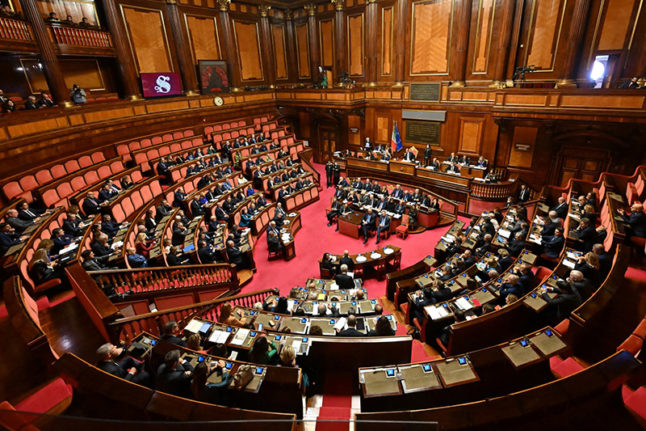Prime Minister Giorgia Meloni’s coalition claims the offence deters mayors from taking tough decisions and bogs down the justice system, because most investigations into abuse of office come to nothing.
But in a country notorious for mafia infiltration of the social, economic and political spheres, particularly at a local level, some experts claim getting rid of it will make it harder to investigate and convict criminals.
The Senate’s Justice Committee took the first step Tuesday towards removing the abuse of office crime, which exists in 25 out of 27 European Union countries, and which Brussels would like to extend bloc-wide.
The National Association of Magistrates (ANM) was quick to react, with head Giuseppe Santalucia saying it would be “unacceptable” for the law to “remain indifferent to a civil servant who abuses his powers”.
Avviso Pubblico anti-corruption association also warned it would give “free rein to white-collar and economic crimes, by facilitating relations between the mafia and politics, starting with local authorities”.
In Brussels, European Commission spokesman Christian Wigand said Rome’s plan “would decriminalise important forms of corruption” and could make it more difficult to detect and fight them.
‘Legislative arsenal’
Justice Minister Carlo Nordio dismissed such concerns Thursday, telling parliament that Italy — after decades of experience fighting organised crime — boasts “a legislative arsenal against corruption”.
While opposition parties want to leave the law as it is, Antonio Decaro, head of the National Association of Italian Municipalities (ANCI) and a member of the centre-left Democratic Party (PD), wants change.
“In 93 percent of cases, investigations do not even lead to a trial,” he told the Stampa daily.
“This slows procedures down while we are asked to speed them up.”
But Gian Luigi Gatta, criminal law professor at the University of Milan, told AFP the offence of abuse of power “plays an important role” and scrapping it “means creating gaps in the defence of public administration”.
The move to axe it comes less than two months after the conviction in Italy of over 200 mobsters and their accomplices — including officials, civil servants and police — for crimes including abuse of office, during a major anti-mafia trial.
READ ALSO: Hundreds found guilty in historic Italian mafia trial
And scrapping the law just as Brussels works on a directive to extend the offence of abuse of office EU-wide “can only put our country in an embarrassing position”, Gatta said.
No dates have yet been set for Italy’s upper and lower houses of parliament to vote on the bill to decriminalise abuse of office.
Meloni’s coalition has a majority in both chambers, but if the bill is adopted as expected, it risks being struck off as unconstitutional, because it could make Italy non-compliant with EU law, Gatta said.
And while civil servants who abuse their office would no longer be punished, those who fail to meet deadlines still could face prosecution — which he said appeared “almost an invitation to zealously abuse (one’s) office”.



 Please whitelist us to continue reading.
Please whitelist us to continue reading.
Member comments